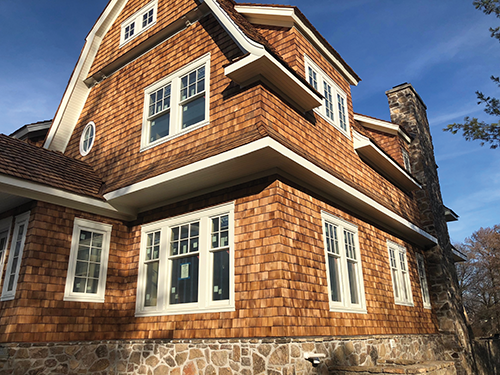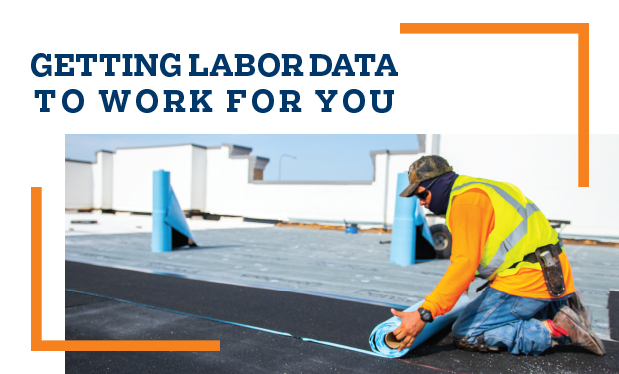First-year salary increases for union members trend downward
On average, unions negotiated 3.2% first-year salary increases through April 22 this year, which is a slight decrease from 3.3% in early April, according to Bloomberg Law. First-year pay increases have fluctuated between 3.1% and 3.3% since January.
Still, the first-year pay increase is higher than it was at the same point in 2018, when it was 2.9%. So far this year, 270 contracts have been entered into Bloomberg Law's database of U.S. wage settlements.
The union-negotiated average first-year salary increase matches the average 3.2% pay increases all U.S. workers—unionized and nonunionized—received during the past 12 months.
Lower wage increases in the manufacturing sector contributed to the most recent decrease in union-negotiated pay raises. Although manufacturing unions negotiated average wage increases of 3.1% at the end of March, that number has since fallen to 2.8%—a loss of more than half a percentage point compared with the same time in 2018.
However, the manufacturing numbers change when considering one-time payments.
"In manufacturing in particular, employers frequently agree to smooth over any post-bargaining resentment by adding lump-sum payouts on top of first-year wage hikes," says Robert Combs, Bloomberg Law analyst. "This year is no exception. But even when these lump sums are factored in, the 2019 average increase of 3.7% is still lagging slightly behind 2018, when it was 3.8% as of April 22."
Average union-negotiated wage increases in nonmanufacturing positions were unchanged at 3.9% compared to early April.
Class action filed against manufacturers alleges price inflation

|
On March 27, Dallas-based law firm Burns Charest filed a proposed federal class action against three Canadian manufacturers, alleging the companies have conspired to artificially inflate the price of cedar shakes and shingles sold to construction companies and roofing contractors in the U.S., according to www.burnscharest.com.
Filed in the U.S. District Court for the Western District of Washington, the litigation includes detailed evidence of improper pricing discussions among the defendants and economic analysis showing the price of cedar shakes and shingles have increased significantly since early 2011.
The lawsuit alleges the price increases are a result of the companies' anticompetitive pricing conspiracy rather than ordinary market forces. The lawsuit also claims the companies conspired with the Cedar Shake & Shingle Bureau to force upstart and discount competitors out of the market so they could charge artificially high prices for their products.
The case is Fraser Construction Company et al v. Cedar Shake & Shingle Bureau et al. The class action complaint is available at www.burnscharest.com/news.
NRCA's updated website requires password reset
On June 3, NRCA launched its updated and redesigned website, www.nrca.net. The site features a cleaner look, easier navigation and revamped mobile responsiveness.
The update requires all NRCA members and customers who have previously registered on the website to reset their passwords.
Please follow these steps to reset your password:- Visit www.nrca.net.
- Click the "Login" button located on the upper right side of your screen.
- Click the "Forgot your password?" link and enter your email address.
- You will receive an immediate email with instructions about how to reset your password.
- A confirmation will be sent to your email, and you will be redirected back to the login page.
- You now will be able to login using your email address and new password.
For additional assistance, contact NRCA's Customer Service Department at (866) ASK-NRCA (275-6722) or info@nrca.net.
U.S. housing starts fall to weakest pace since 2017

|
U.S. new home construction decreased in March to the slowest pace since May 2017, suggesting builders remain wary despite lower mortgage rates and consumers' steady wage gains, according to Bloomberg Law.
Residential starts decreased 0.3% in March from an annualized rate of 1.142 million to 1.139 million. Permits dropped 1.7% to a 1.27 million rate.
Single-family housing starts decreased 0.4% to 781,000, the weakest pace since September 2016, and permits dropped 1.1% to 808,000—the lowest since August 2017. Multifamily homes were unchanged at 354,000; permits dropped 2.7%. Three of four regions experienced declines, led by the Midwest with a 17.6% decrease.
The slower pace signals developers continue to face challenges regarding building affordable properties amid rising labor and materials costs. Additionally, existing home sales are expected to decrease after February's increase, and new home sales are expected to pull back from current growth.
Still, real estate has shown potential stability with mortgage rates down from 2018 and the Federal Reserve saying it likely will keep interest rate increases on hold in 2019.
U.S. hiring rebounds and unemployment remains nearly record-low
Hiring in the U.S. recovered more than predicted in March, and the unemployment rate held steady at a near-record low 3.8%, according to Bloomberg Law. Payrolls rose 196,000, and average hourly earnings increased 3.2% from 2018.
Education and health services led the payroll gains, as well as professional and business services. Construction payrolls experienced a 16,000 gain, and manufacturing continued to weaken with a loss of 6,000 jobs.
The data indicate the labor market is strong enough to support economic growth during the next few months even if job gains moderate from 2018.
Former FRSA president passes away
 Swope |
Samuel Morris Swope, former president of Tampa Roofing Co. Inc., Tampa, Fla., and past president of the Florida Roofing and Sheet Metal Contractors Association Inc., passed away March 27. He was 91.
Beginning in the 1950s, Swope grew his father-in-law's small roofing business into Tampa Roofing, a successful commercial and residential roofing company. He was heavily involved in the roofing industry at the local, state and national levels and served as vice president of NRCA from 1990-92. Swope also was past president of FRSA and received its Bob Campanella Memorial Award. His son Keith is a past president of FRSA, as well, and his grandson, Brian, is FRSA's president-elect.
During his vast career, Swope helped develop building codes for the Southern Building Code Congress International and encouraged Florida to develop a licensing test for roofing contractors. He received the first roofing license issued by the state.
Swope is survived by his children, Dale, Keith and Sandi; seven grandchildren; and six great-grandchildren. Memorials may be made to Trinity Café at trinitycafe.org or The Mission Hills Church Deacon's Fund at missionhillchurch.com/connect/unified-missions.
Construction workers excluded from NYC marijuana testing bill
On April 9, the New York City Council approved a bill that would prevent employers from requiring job candidates to submit to drug testing for marijuana as a condition for hiring, according to Bloomberg Law. The bill excludes all workers on construction sites.
The bill is part of the city's move to reduce the legal consequences of marijuana use. City police and prosecutors have pulled back on arrests and prosecutions for low-level marijuana crimes, and the council passed a resolution in March urging the state to legalize recreational marijuana.
"We need to be creating more access points for employment, not less," says Jumaane Williams, a New York City public advocate who sponsored the bill in his capacity as a citywide elected official who presides over the council. "And as we move toward legalization, it makes absolutely no sense that we're keeping people from finding jobs or advancing their careers because of marijuana use."
However, the bill would make exceptions for jobs involving security and safety, including construction, and jobs tied to federal or state contracts.
Testimony given by construction contractor organizations led to the exclusion of all construction workers from the bill—not just those operating heavy machinery. Other categories not covered by the bill include police officers; other law enforcement or criminal investigation personnel; workers in jobs requiring a commercial driver's license; workers who care for or supervise children, medical patients or people with disabilities; and workers in jobs with a significant effect on health and safety. Drug testing provided under collective bargaining agreements also would not be covered.
The bill still requires approval from Mayor Bill de Blasio and would take effect a year after its final enactment.
To learn more about maintaining a drug-free workplace, see "High times," September 2017 issue.



